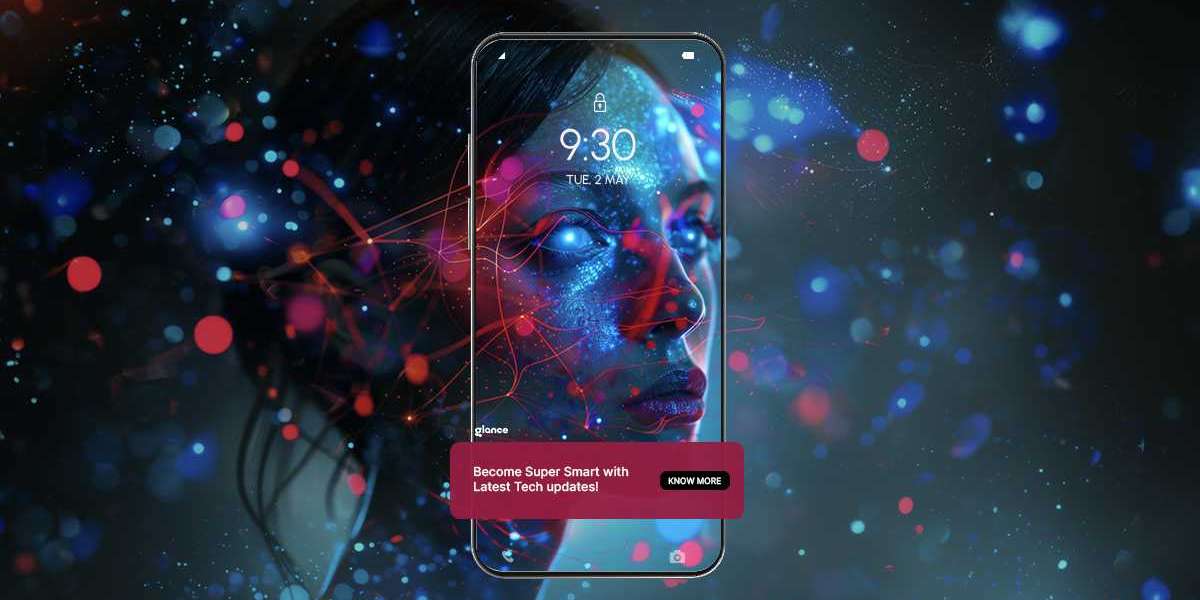In an era where technology evolves at breakneck speed, Artificial Intelligence (AI) stands out as a transformative force, reshaping the way we interact with the world around us.
From the moment we wake up to the time we rest our heads on our pillows, AI technology has become an integral part of our daily routines, often in ways we might not even realize. This blog post delves into the fascinating world of AI technology, exploring its current applications and potential future developments.
Face-to-Face with the Future: Apple's Face ID
One of the most tangible examples of AI technology in our everyday lives is Apple's Face ID technology. This sophisticated facial recognition system represents a quantum leap in device security and user convenience. By projecting and analyzing over 30,000 invisible dots on a user's face, Face ID creates a detailed 3D map that's as unique as a fingerprint.
What sets Face ID apart is its ability to adapt and learn. Using machine learning algorithms, it can recognize changes in a user's appearance, such as growing a beard, wearing glasses, or aging over time. This adaptive capability ensures that the system remains secure and functional, regardless of how a user's appearance might change.
AI Technology Takes the Wheel: Tesla's Autopilot System
When we think of AI technology’s potential to revolutionize transportation, Tesla's Autopilot system often comes to mind. This advanced driver-assistance system showcases the power of AI technology in the automotive industry. Using a complex network of cameras, sensors, and deep learning algorithms, Autopilot can navigate roads, change lanes, and even park the vehicle with minimal human intervention.
The system continuously learns from the vast amount of data collected from Tesla vehicles on the road, improving its performance and safety features over time. While fully autonomous driving is still a work in progress, Tesla's Autopilot demonstrates how AI technology can enhance road safety and transform the driving experience.
Your Personal AI Assistant: Siri and Alexa
Digital assistants like Apple's Siri and Amazon's Alexa have become household names, serving as prime examples of AI technology’s integration into our daily lives. These AI-powered assistants use natural language processing (NLP) to understand and respond to user queries, making interactions with technology more intuitive and human-like.
What's particularly impressive about these digital assistants is their ability to learn and adapt. They remember user preferences, understand context, and even anticipate needs based on past interactions. As these systems continue to evolve, we can expect even more seamless and personalized digital experiences.
The Smart Home Revolution: Nest Thermostat
AI technology’s influence extends beyond our devices and into our living spaces. The Nest Thermostat, a pioneer in smart home technology, exemplifies how AI technology can enhance our comfort while promoting energy efficiency. This intelligent device learns from user behaviors and preferences, automatically adjusting temperature settings to optimize comfort and reduce energy consumption.
By analyzing data from sensors and user inputs, the Nest Thermostat can create personalized schedules, detect when no one is home, and even integrate with other smart home devices for a more holistic approach to home management. This level of AI-driven automation not only simplifies our lives but also contributes to more sustainable living.
AI Technology in Customer Service: The Rise of Chatbots
In the realm of customer service, AI-powered chatbots are revolutionizing how businesses interact with their customers. These intelligent systems use machine learning and NLP to understand and respond to customer inquiries in real-time, providing instant support and improving overall user experience.
Chatbots can handle multiple conversations simultaneously, are available 24/7, and can quickly access vast amounts of information to assist customers. As these systems become more sophisticated, they're increasingly able to handle complex queries and even detect emotional nuances in customer communications, allowing for more empathetic and effective support.
The Next Frontier: Glance Lock Screen Technology
While Apple's Face ID has already transformed how we interact with our devices, there's potential for even more innovation in the lock screen space. Enter the concept of the Glance lock screen, a feature that could take the humble lock screen from a simple security measure to a dynamic, personalized information hub.
Imagine an Apple lock screen that not only recognizes your face but also presents you with relevant, real-time information at a glance. This could include updates on your favorite sports teams, current weather conditions, breaking news, or personalized content based on your interests and habits.
By leveraging AI technology and machine learning, a Glance-enabled lock screen could analyze user behavior, preferences, and contextual information to curate a feed of relevant content. This would allow users to stay informed and connected without even unlocking their devices, seamlessly integrating information consumption into their daily routines.
The potential integration of Glance technology with Apple's ecosystem could open up new possibilities. Users could receive personalized content from Apple News, preview their Apple Music playlists, or see App Store recommendations right on their lock screen. This AI-driven feature would not only enhance user experience but also align with Apple's commitment to privacy by processing all personalization on-device.
Final Thoughts: The Promise of AI Technology
As we've explored in this blog post, AI technology has already made significant inroads into our daily lives, from the way we secure our devices to how we interact with our homes and receive customer support. The examples we've discussed - Apple's Face ID, Tesla's Autopilot, digital assistants like Siri and Alexa, the Nest Thermostat, and AI-powered chatbots - are just the tip of the iceberg when it comes to AI's potential.
Looking ahead, the integration of AI technology into our mobile devices, as exemplified by the concept of the Glance lock screen, represents an exciting frontier in human-computer interaction. By transforming our lock screens into intelligent, personalized information hubs, AI technology has the potential to make our devices even more indispensable and tailored to our individual needs.
However, as we embrace these AI-driven innovations, it's crucial to consider both the benefits and the challenges they present. On one hand, AI technology offers unprecedented convenience, efficiency, and personalization. They can help us make better decisions, save time and energy, and stay connected in ways we never thought possible.


